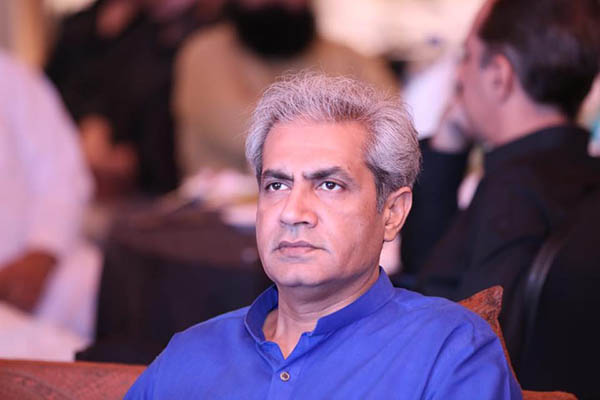
Photo courtesy Facebook
The federal government on Monday night issued a notification removing Punjab Governor Omar Sarfraz Cheema from office, mere hours after President Arif Alvi had rejected the advice of Prime Minister Shehbaz Sharif to dismiss the Pakistan Tehreek-e-Insaf (PTI) leader.
Issued by the Cabinet Division, the notification said that Cheema had ceased to hold office on the basis of the advice of the prime minister—initially sent on April 17 and then again on May 1—and said Punjab Assembly Speaker Pervaiz Elahi would perform the functions of the governor until the appointment of a new governor, in accordance with Article 104 of the Constitution.
Earlier, the president had rejected the prime minister’s advice, citing Article 101(3), which states the governor shall hold the office “during the pleasure” of the president. In a statement, the President’s Office said that the prime minister had been informed that the governor could not be removed without Alvi’s approval. It said the president’s note to the prime minister had pointed out that the incumbent governor could not be removed as there was neither any allegation of misconduct nor conviction by any court of law or of any act committed by him contrary to the Constitution. “It is my duty as Head of the State to represent the unity of the Islamic Republic of Pakistan in terms of Article 41 of the Constitution,” Alvi added.
The PTI has repeatedly claimed that under the Constitution the governor can only be dismissed by the president and not the prime minister. By contrast, the Pakistan Muslim League (Nawaz) has maintained that the president must act on the advice of the prime minister and there is no possibility of the governor continuing in office if the federal government has sought his ouster.
Legal experts of the PTI have also claimed that the PMLN’s reading of the Constitution only applies if there is no incumbent governor.
In a posting on Twitter on Tuesday morning, Cheema claimed that the president had rejected the prime minister’s summary seeking his ouster in view of “extraordinary circumstances,” adding that he rejected his ouster. “Consultations with constitutional experts are underway,” he wrote. “I will announce my next course of action shortly,” he added.
Earlier, he had appeared to warn of violence if the federal government forced his ouster. “The threatening and inflammatory statements of the attorney general and interior minister may lead to a civil war. Both of them have proved they are courtiers, thugs of the Raiwind palace,” he wrote on Twitter.
Claiming that he had “calmed” the situation when Governor House was “held hostage” for the oath-taking of Hamza Shehbaz as chief minister of Punjab, he warned that if it were “attacked” again the result would be different and could trigger a civil war.
Cheema’s statement on the interior minister referred to a speech by Rana Sanaullah in which he had advised the governor to go home “respectably” and avoid any actions that could prompt public backlash. “The president is bound to implement the prime minister’s advice, and any deviation will be tantamount to a violation of the Constitution,” he had said, adding that the Supreme Court had already ruled that the president had largely a ceremonial role in a parliamentary democracy and had no veto powers to nullify the advice of the prime minister.
The PMLN-led coalition government in Punjab has been eager to dismiss Cheema, as he has refused to accept the election of Hamza Shehbaz and has also refused to administer oath of office to his cabinet, delaying the formation of government in the province.
